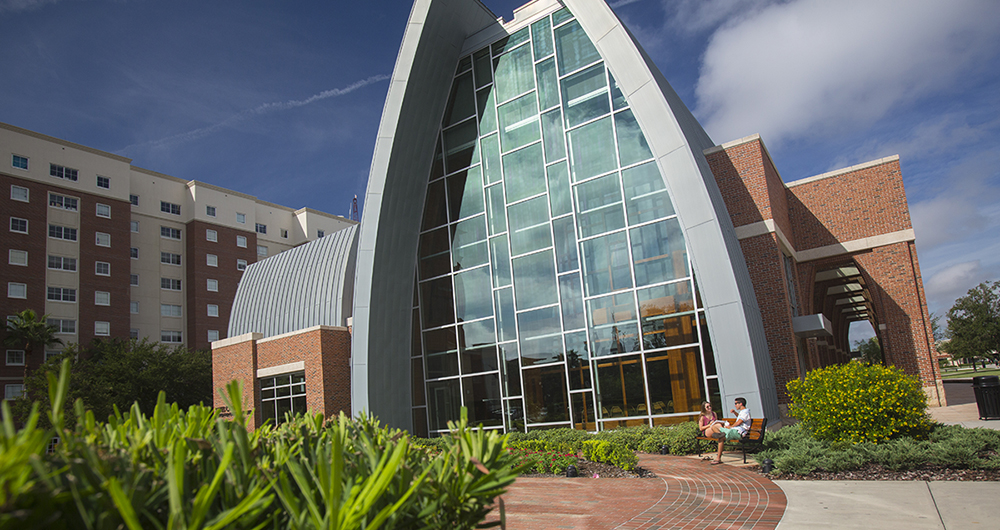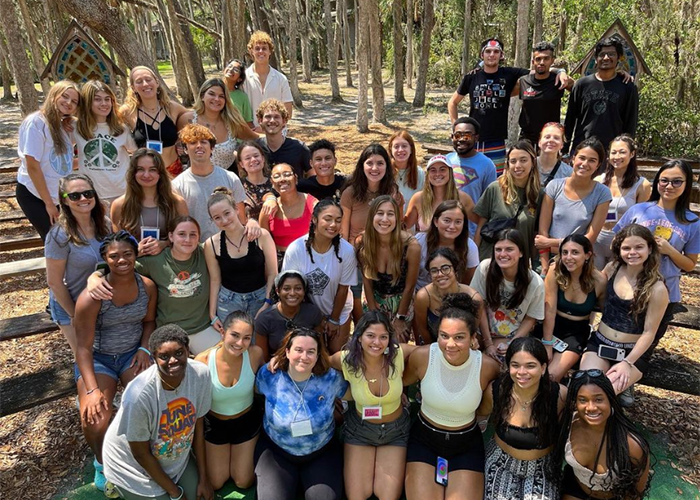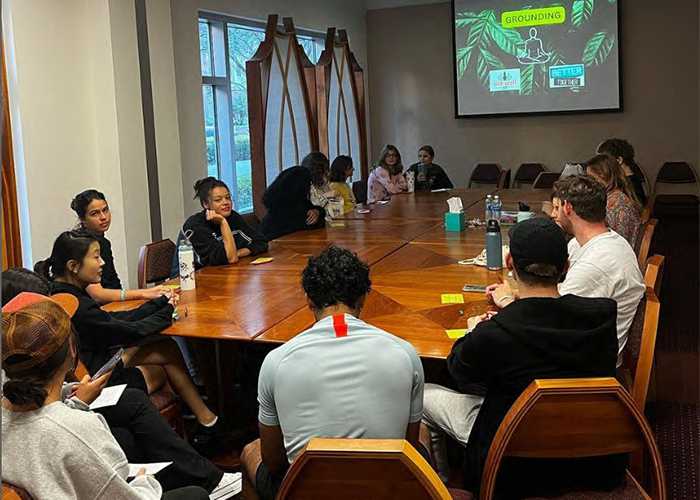Follow Live Well on Social Media
Need to Get in Touch?
Normal Hours of Operation:
Monday–Thursday 8:30 a.m. to 5 p.m.
Summer Hours of Operation:
Monday–Thursday 8 a.m. to 5:30 p.m.

What is Spiritual Wellness?
Spiritual Wellness is taking the time to stop doing and start being. For some, spiritual wellness means participating in organized religion but for others, spirituality comes through mindfulness, connection to nature, or other reflective moments and activities. Spiritual wellness is personal and can be described differently by each person but generally relates to one’s sense of purpose, life’s meaning, our relationship with other people, self-awareness, and connectedness.
Spirituality at the University of Tampa
Although the University is independent and non-sectarian, religious/spiritual beliefs and practices are highly respected and encouraged. All spiritual organizations and local community partners that wish to be involved at the University must be partnered with a Registered Student Organization and abide by the University of Tampa's Spiritual Agreement of Mutual Respect and Understanding.
Many on-campus events related to faith, values and spirituality are hosted in our Sykes Chapel and Center for Faith and Values can be found on Involve.
To request specific needs concerning faith, values and/or spirituality, please submit a request below. Wellness Services will respond to your request within three business days.
Non-Academic Religious Accommodation Request
In consideration of non-academic religious accommodations, any student may submit a request to Wellness Services by completing a Non-Academic Religious Accommodation Request.
The student may choose to submit any supporting documentation, and a letter from a faith leader is recommended. Requests are reviewed by the Non-Academic Religious Accommodations Committee and a timeline of the review will be provided to the student. The committee chair or designee will contact the student regarding the outcome.
Please note that requests for specific residence hall room configurations (e.g. single room or private kitchen access) or residence hall locations are not eligible for religious accommodations. Additionally, if a religious accommodation is granted, it will not change a student’s status on a housing waiting list or during room selection or other housing processes.
The decision of the Non-Academic Religious Accommodations Committee is final. If the religious accommodation request is denied, the student may cancel their housing application with no penalty.
Any student requesting an accommodation for a qualifying disability should contact the associate director of Student Accessibility and Academic Support in Student Accessibility Services to request appropriate accommodations and provide supporting documentation.




